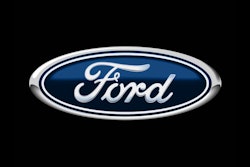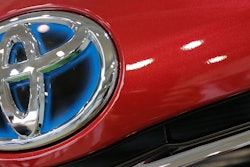Biologic drugmaker Gilead Sciences Inc. said Monday that it will buy a subsidiary of Nimbus Therapeutics LLC and its experimental pill for an increasingly common metabolic disorder that causes life-threatening fat buildup in the liver.
Gilead, based in Foster City, California, will pay $400 million for Nimbus Apollo Inc. Parent company Nimbus Therapeutics, based in Cambridge, Massachusetts, could receive another $800 million if Nimbus Apollo's drug development program meets certain milestones in testing results and medicine approval and sales.
Gilead has been sitting on billions generated by its lucrative hepatitis C medicines, Harvoni and Sovaldi. At the end of 2015, it held $26.2 billion in cash and cash equivalents. Investors have been expecting Gilead to use that on deals to boost its pipeline of experimental drugs before the hepatitis C revenue starts falling. That's already begun in the U.S., due to increasing competition and pressure from insurers for bigger discounts off their list prices: about $84,000 for a course of treatment with Sovaldi and $94,000 for combination drug Harvoni.
The Nimbus deal brings Gilead a drug that could treat fatty liver and possibly liver cancer and other diseases, plus technology for "designing" more-targeted medicines faster.
The experimental drug, called NDI-010976, in February won the Food and Drug Administration's fast-track designation, which speeds up regulatory review and approval. The drug blocks two forms of an enzyme, acetyl CoA carboxylase or ACC, involved in making fatty acids and regulating the breakdown of fatty acids in cells.
NDI-010976 initially is being tested to treat non-alcoholic steatohepatitis, known by the acronym NASH. That can cause inflammation, cell damage, progressive scarring and cirrhosis of the liver. It affects up to 15 million Americans, and it's expected to become the top reason for liver transplants by 2020.
Norbert Bischofberger, Gilead's chief scientific officer, said the acquisition "will complement and further strengthen Gilead's ongoing efforts to address unmet needs in NASH."
In animal testing, blocking the ACC enzyme reduced liver fat, inflammation and scarring. Results from initial patient testing of NDI-010976 are to be announced next month at a European liver disease conference. The drug might also improve patients' levels of blood sugar, blood fats, weight and risk of cardiovascular complications.
Besides acquiring that drug, the deal brings Gilead access to technology that Nimbus bills as a "breakthrough computational chemistry platform" enabling rapid discovery, design and tweaking of promising medicines in areas of high unmet need.
The deal is expected to close in the second quarter.
Privately held Nimbus focuses on metabolic disorders, cancer and immune-inflammatory disorders, which have related mechanisms.
Credit Suisse analyst Alethea Young wrote to investors that big drugmakers have previously tried to develop a drug that could block the ACC enzyme, believing that doing so would limit production of fat and fatty acids and actively burn fat. Their failures, she wrote, were due to problems finding sites on the enzyme to which a drug could bind.
She called the Nimbus approach "interesting but early." Young believes Gilead likely is seeking a combination of drugs to treat NASH and liver disease.
"We expect the company to continue being opportunistic in (making) acquisitions," Young added.
In afternoon trading, Gilead shares rose 34 cents to $94.46, while the broader markets declined slightly.
___
Follow Linda A. Johnson at www.twitter.com/LindaJ_onPharma






















